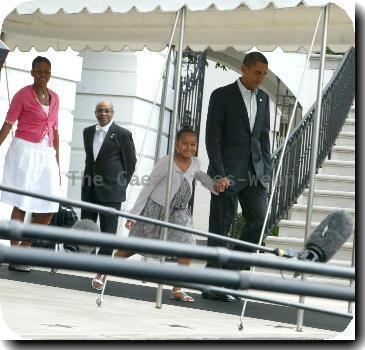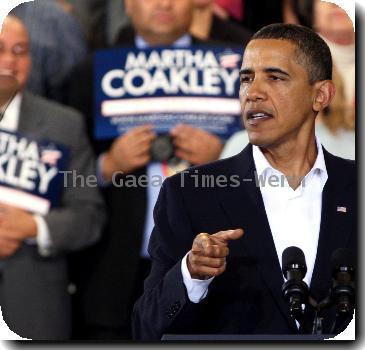Cuba offers Obama 19 small but specific steps US can take to ease embargo, improve relations
By Andrea Rodriguez, APThursday, September 16, 2010
Cuba offers 19 ways Obama can loosen US embargo
HAVANA — Cuba is offering a series of small but specific steps the administration of President Barack Obama can take to soften the United States’ 48-year-old trade embargo, including expanding flights and establishing ferry service between both countries and dropping bank bans that keep U.S. credit cards from working on the island.
The 19 suggestions are a new — and perhaps conciliatory addition — to the communist government’s annual report criticizing Washington’s trade sanctions. Cuba produces the report every year ahead of an annual United Nations vote in which the world overwhelmingly condemns the embargo.
The 56-page report acknowledges that Obama cannot scrap the full embargo without approval from Congress, but uses pages 4 through 7 to discuss steps his administration can take unilaterally.
Among them are doing away with rules that prohibit Cuban-Americans and other authorized U.S. visitors from carrying home Cuban gifts — such as the island’s famous rum and cigars — and dropping restrictions that limit such travelers from spending more than $179 per day on lodging, food and transportation.
Also included is a suggestion that Obama increase “people-to-people” exchanges with Cuba, expanding opportunities for American students, educators and researchers.
Doing so would ease travel restrictions back to levels prior to the administration of George W. Bush, and officials in the Obama White House have said for weeks they expect an announcement expanding “people-to-people” travel to come soon.
Cuba’s suggestions for Obama are unique in that they are specific enough to suggest the island’s communist government may be adopting a more conciliatory tone in its criticism of U.S. policy.
Whether the list will lead to anything concrete was unclear, however. U.S. officials are likely to ignore it, especially since island leaders routinely bristle at any suggestions about economic or policy changes on the island when they come from Washington.
The report was released Wednesday following a presentation by Cuban Foreign Minister Bruno Rodriguez, who claimed that the embargo has cost Cuba $751 billion to date and lamented that Obama has missed a golden opportunity to improve relations with the government of President Raul Castro.
In Washington, State Department spokesman Mark Toner said, “we remain committed to policies that advance U.S. national interests and support the Cuban people’s desire to freely determine their future.”
The United States first imposed economic sanctions in 1961, and the embargo took its current form the following year. Exempted from the embargo are U.S. food, agriculture, and medicine.
In 2009, Obama made it easier for Cuban-Americans to visit the island and send money to relatives here, and an agreement by both sides already permits charter flights to Havana from Miami and New York, mostly for Cuban-Americans and a few others with Washington’s permission to visit.
Authorities in other U.S. cities, including Tampa, Florida, and New Orleans, have expressed interest in operating direct flights to Cuba, if government rules allowed them to.
Cuba also said it wants Obama to make it easier for American travel agencies to sell trips to the island; currently only 150 agencies are authorized to do.
Its other suggestions included removing Cuba from the United States’ annual list of state sponsors of terrorism; allowing Cuban airlines — not just U.S. ones — to fly passengers between both countries; and expanding approved U.S. exports to the island to include insecticides, pesticides, more farming machinery and wooden furniture.
Tags: Barack Obama, Caribbean, Cuba, Cuba-us Embargo, District Of Columbia, Foreign Policy, Havana, Latin America And Caribbean, North America, Travel Safety, United States

